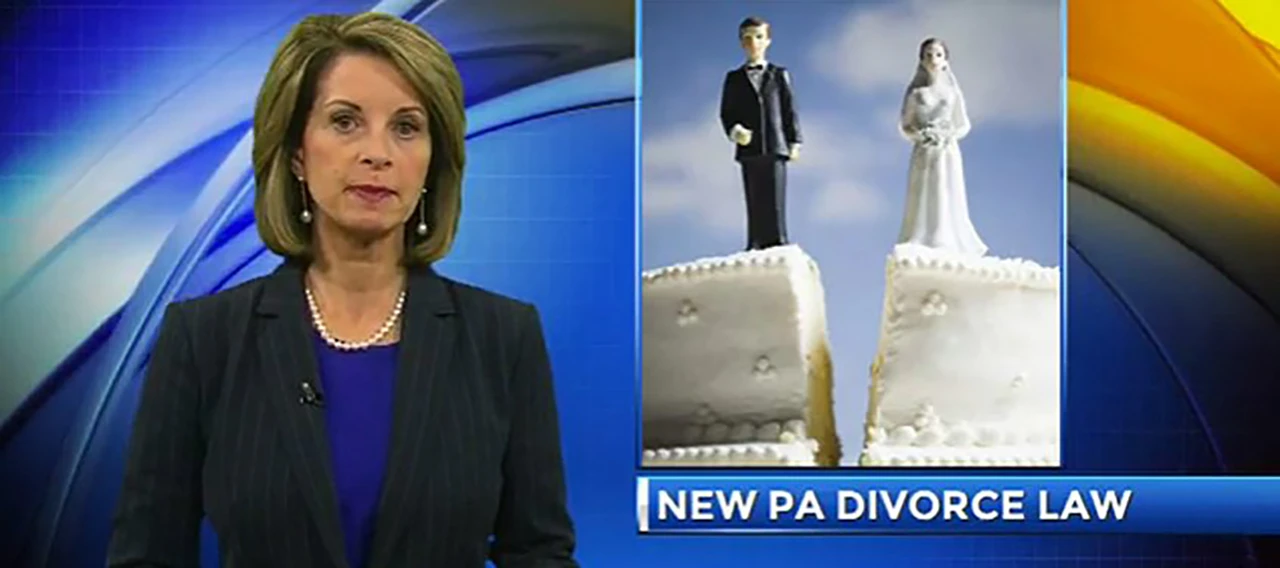PA to shorten required time between separation, divorce

Divorce laws are about to change in Pennsylvania.
Starting Saturday, no longer will one partner be able to make the process as long and costly as it is now. At issue are no-fault divorces where one person wants a divorce and the other doesn’t.
The changes are meant to speed up that process and make it easier on the kids.
“It’s definitely been rough,” Felicia Latsha said Thursday. “It’s been really rough the last four years.”
It wouldn’t have been, she thinks, had her divorce not taken so long.
“It extended, I think, emotions and it extended the anger,” she said.
Her then-husband wanted the split. She didn’t. That meant waiting a mandatory two years after they separated to move forward with the divorce.
The idea is to give couples a chance to reconcile. Latsha said that was never going to happen, and in that time, their two kids kind of felt the resentment between them.
“Moving slower,” she said. “Especially with the kids, it just, it’s hard. It’s hard for the kids more than anything.”
The new law aims to address that. It amends the state divorce code to make that waiting period for a no-fault divorce where one party doesn’t agree to one year, not two.
The change, signed into law by Gov. Tom Wolf back in October, takes effect Saturday.
“Yes, it’s making it easier to get a divorce, but no, that’s not necessarily a good thing,” Marc Scaringi said.
The Harrisburg-based family law attorney disagrees with the Pennsylvania Bar Association, which has endorsed the changes.
“Divorce in and of itself is acrimonious, is emotionally charged, is harmful to the children,” he said, adding he thought it was unlikely a shorter waiting period would change that.
It’s rare, but he said some of his clients do end up reconciling in that two years. Supporters of the change, including local attorneys who lobbied for its passage, say the evidence doesn’t show a correlation between how long the wait is and the chances of reconciliation.
“Because it is uncommon for parties to reunite once the divorce process has started, requiring parties to wait for two years only prolonged the inevitable and resulted in increased legal fees, intensified turmoil between the parties and extended stress on the family,” PBA family law section chair Mary Cushing Doherty said in a statement released by the organization shortly after the bill passed.
But Scaringi worries about the long-term consequences.
“I think the public policy shows the results of no-fault divorce and these liberalized divorce laws. It’s had a devastating impact on families,” he said.
When the no-fault divorce came to Pennsylvania in 1980, there was a three-year waiting period. In 1988 it was reduced to two.
Scaringi attributes the rise in divorce rates, at least in part, to the relaxation of no-fault divorce rules.
Another affect of the law, the attorney pointed out, is that it limits the amount of time a dependent spouse can collect financial support from the other, sometimes encouraging them to drag out the proceedings. Scaringi said he supports that aspect of it.
Still, he said, we should be encouraging people to stay together, not make it easier for them to split up.
“It’s best for the situation,” Latsha said of her past marriage.
In hindsight, she said splitting up was the right call. Now she wishes they could have made it sooner.
“If it were one year instead of two, I think we all could have just moved on a lot quicker,” she said.
